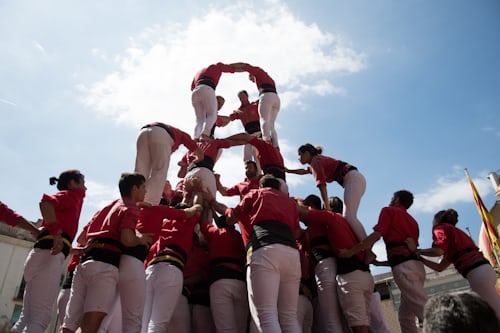In his book "Reinventing Organizations", Frédéric Laloux presents the concept of the "Teal company". This new form of organization is based on three fundamental pillars: a scalable structure, a culture of trust, a vision of the company as a living organism.
The Teal organization, an evolving structure
One of the main elements that characterizes the Teal organization is its evolving structure. Unlike traditional organizations, the Teal organization does not have a strict hierarchy and its members are encouraged to self-organize according to the needs of the organization. Teams are created and dissolved according to projects, and decisions are made collectively by team members. This evolving structure allows for great flexibility and the ability to adapt quickly to changes.
The Teal organization, a culture of trust
The Teal organization is also characterized by a culture of trust. Members of the organization are encouraged to trust each other and work together transparently. Hierarchical relationships are replaced by collaborative relationships based on mutual trust and respect. This culture of trust allows for the liberation of creativity and innovation and fosters the engagement of members of the organization.
The Teal organization, a vision of the organization as a living organism
The Teal organization adopts a vision of the organization as a living organism. This vision emphasizes the importance of listening to the needs of the organization and its members, as well as the need to maintain a balance between the different aspects of the organization. The Teal organization considers that members of the organization have a role to play in the development of the organization and that everyone can contribute to its success.
For this reason, each member of the organization is free to take the initiatives he or she deems good for the organization. In order to allow the organization to thrive through these initiatives, they must be shared with the community in order to receive the opinions of competent people in the group. Humility must be shown during this process, as it is also a great opportunity to receive knowledge from colleagues. The resulting decision is based on the strength of the group, carried by a motivated person and supported by the advice of the people consulted.
Thus arise natural hierarchies based on the skills and interests of each of us. Before any decision is made, solicitation of opinions must be organized with all the people impacted by this decision.
Our version of the Teal organization
At Squadracer, since trust in each of our colleagues is given by default, we can give free rein to our creativity, intuition, and ideas proposed through requests for opinions. Decisions are therefore made based on the opinions collected from all the people who will have to live with the consequences of these decisions.
It is this freedom of expression that allows each of us to grow our natural skills according to what makes us vibrate, what motivates us, and gives us extra energy in our daily work. It’s like a breath of fresh air that acts as a motor for everyday work.
This is how we have seen people at Squadracer shine through their communication on different networks, others with outstanding organizational skills for events, some have carried the commercial side thanks to their extensive professional network, others have demonstrated great abilities in managing the client interface, and some have taken on administrative tasks that cannot be avoided.
This diversity of complementary skills allows Squadracer to easily adapt to external events.
We define a set of objectives every 6 months that define a global direction, but we modify this set of objectives as events arise that we could not have foreseen in advance. Thus, some objectives are abandoned, and new ones appear, such as the opportunity to organize Paris.rb following the last-minute withdrawal of the presumed organizer. Or participation in the next Ruby on Rails hackathon for the creation of an open-source gem. Another example: realizing that several of us were having difficulties on fixed-price projects, we wrote and posted online the project management that we believe is the only one that guarantees the satisfaction of our clients.
To be continued… Squadracer is full of surprises to come…
Conclusion
The Teal organization described by Frédéric Laloux offers an interesting alternative to traditional organizational models. Its evolving structure, culture of trust, and vision of the organization as a living organism allow for great flexibility and the ability to adapt to changes, while promoting the engagement and creativity of members of the organization. If you are looking to reinvent your organization, the Teal organization could be a source of inspiration.



